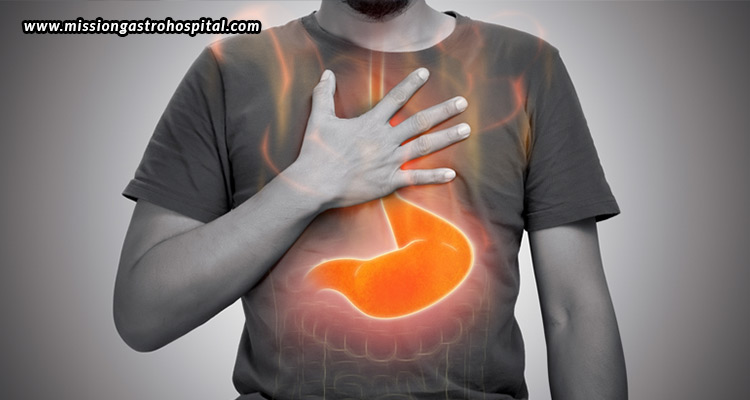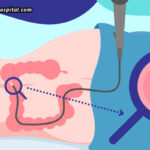Many people find themselves enjoying barbecues, savouring ice-cold beverages, and lounging in the sun as the summer heat intensifies. But these seasonal delights frequently have an unwanted visitor – acid reflux. The intense heat might worsen symptoms, increasing the frequency and intensity of heartburn and regurgitation. More people are likely to experience the discomfort of acid reflux during the height of the summer season. This in-depth guide will go over practical lifestyle advice and available treatments to help you control acid reflux, enhance your quality of life, and enjoy summers without the burn.
Are you suffering from acid reflux?
You must be aware of the most typical signs of acid reflux in order to determine if you have the condition or whether your symptoms are indicating something else. The most common symptoms of acid reflux include –
- Heartburn, a burning sensation in the chest that usually occurs after eating, becoming more severe at night
- Chest discomfort, which may be mistaken for a heart-related discomfort, and should be analyzed by a physician
- Regurgitation, the backflow of an acidic or bitter taste into your mouth or throat
- Dysphagia, difficulty in swallowing, which can be brought on by inflammation or oesophageal injury
- Chronic cough, which is persistent and constant, especially during the night
- Hoarseness or sore throat, which can result from acid irritation
Lifestyle tips for managing acid reflux
Dietary modifications
- Steer clear of trigger foods. Some meals can cause reflux by relaxing the LES or producing more acid in the stomach. Typical catalysts consist of spicy foods, citrus fruits, tomatoes, chocolate, caffeine, alcohol, carbonated beverages, and fried foods.
- Consume multiple small meals, rather than one single large meal. Large meals may exacerbate reflux and raise stomach pressure.
- Remain upright after eating. Lying down soon after might make acid reflux worse. After eating, try to stay awake for at least two to three hours.
- Chewing food thoroughly and consuming food slowly helps improve digestion and lessen the chance of reflux.
Lifestyle changes
- Maintain a healthy weight. Being overweight can raise the pressure inside the abdomen, which can force stomach acid into the oesophagus. Symptoms of acid reflux can be greatly reduced by losing weight.
- Raise the head of your mattress. You can lessen the chance of acid refluxing into your oesophagus as you sleep by raising the head of your bed by 6 to 8 inches.
- Steer clear of tight clothing. Tight waistbands and belts might compress your abdomen and aggravate reflux.
- Give up smoking. Smoking stimulates the generation of acid and weakens the LES. Giving up smoking can enhance general health and reduce symptoms of acid reflux.
- Reduce stress. Stress can aggravate acid reflux by interfering with the digestive process. Engage in stress-relieving activities like yoga, deep breathing exercises, meditation, and regular exercise.
Treatment options for acid reflux
There are some over-the-counter medications that can help reduce acid reflux symptoms like antacids, H2 blockers, and proton pump inhibitors. However, it is always advisable to seek the advice of a healthcare professional before consuming any of these, or even better, take up prescription medications like prokinetics.
- Antacids: By neutralizing stomach acid, antacids such as Tums, Rolaids, and Mylanta can offer immediate relief. They don’t deal with underlying problems, but they are good for occasional usage.
- H2 blockers: Drugs that lower the generation of acid include ranitidine (Zantac) and famotidine (Pepcid). They can be used for mild to severe symptoms and offer more sustained relief than antacids.
- Proton Pump Inhibitors: More effective acid reducers that last longer and aid in oesophageal repair include over-the-counter PPIs such as lansoprazole (Prevacid) and omeprazole (Prilosec).
- Stronger H2 blockers and PPIs: Physicians may recommend longer courses or higher dosages of H2 blockers or PPIs for patients with severe or persistent acid reflux.
- Prokinetics: By strengthening the LES and enhancing stomach emptying, medications like metoclopramide (Reglan) might lessen the chance of reflux.
Surgical and endoscopic procedures
There are certain surgical and endoscopic procedures that may be recommended for severe acid reflux issues. There are also other alternative therapies like herbal remedies and acupuncture that may be advised.
- Fundoplication: To strengthen the LES and stop reflux, this surgical operation entails wrapping the upper portion of the stomach around the LES. Usually, it is advised in extreme instances when medicine is ineffective.
- LINX device: To improve the function of the LES while letting food to flow through, a surgically implanted ring of magnetic beads is positioned around it.
- Endoscopic procedures: To tighten the LES and lessen reflux, procedures like endoscopic stitching or radiofrequency therapy might be used.
- Herbal remedies: Some patients may achieve success when using simple herbal remedies like liquorice root, ginger, and chamomile.
- Acupuncture: Although further research is required, this ancient Chinese medical procedure may be able to help some people with their symptoms.
- Supplemental melatonin: Studies have suggested that melatonin supplements might lessen the symptoms of acid reflux, but further study is needed to confirm this.
When to see a doctor?
Although mild to moderate acid reflux can be effectively managed with lifestyle changes and over-the-counter treatments, if you experience severe or persistent symptoms, difficulty swallowing, unintended weight loss, chronic hoarseness or sore throat, or chest pain that feels similar to heart pain, you should see a healthcare provider. These may indicate more serious disorders that need to be evaluated and treated medically, such esophagitis, Barrett’s oesophagus, or oesophageal cancer. To avoid problems and guarantee the best possible health results, early diagnosis and action are essential. Don’t let acid reflux dictate your life; see a doctor and take the first step towards better digestive health and overall well-being. Mission Gastro Hospital is the best gastro hospital in Ahmedabad, where modern facilities and a staff of highly qualified gastroenterologists offer comprehensive treatment customized to each patient’s needs.








